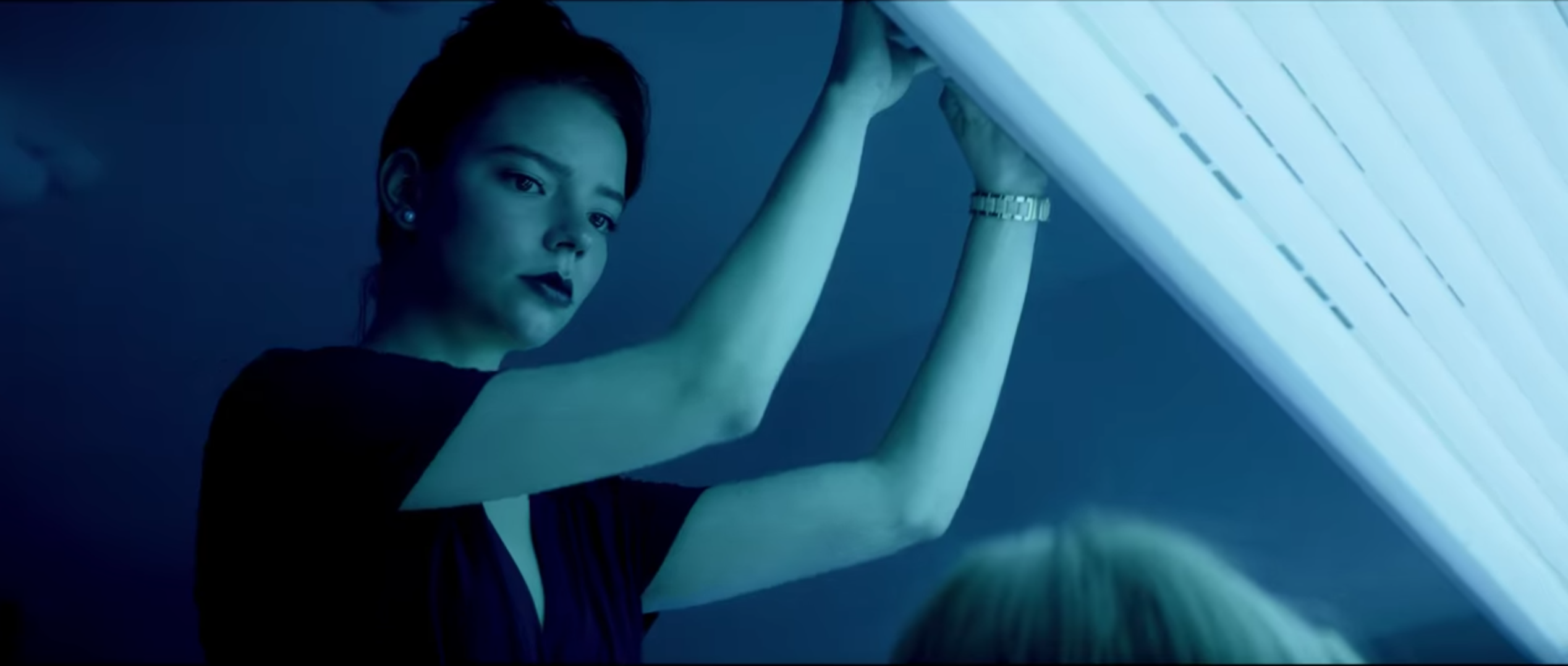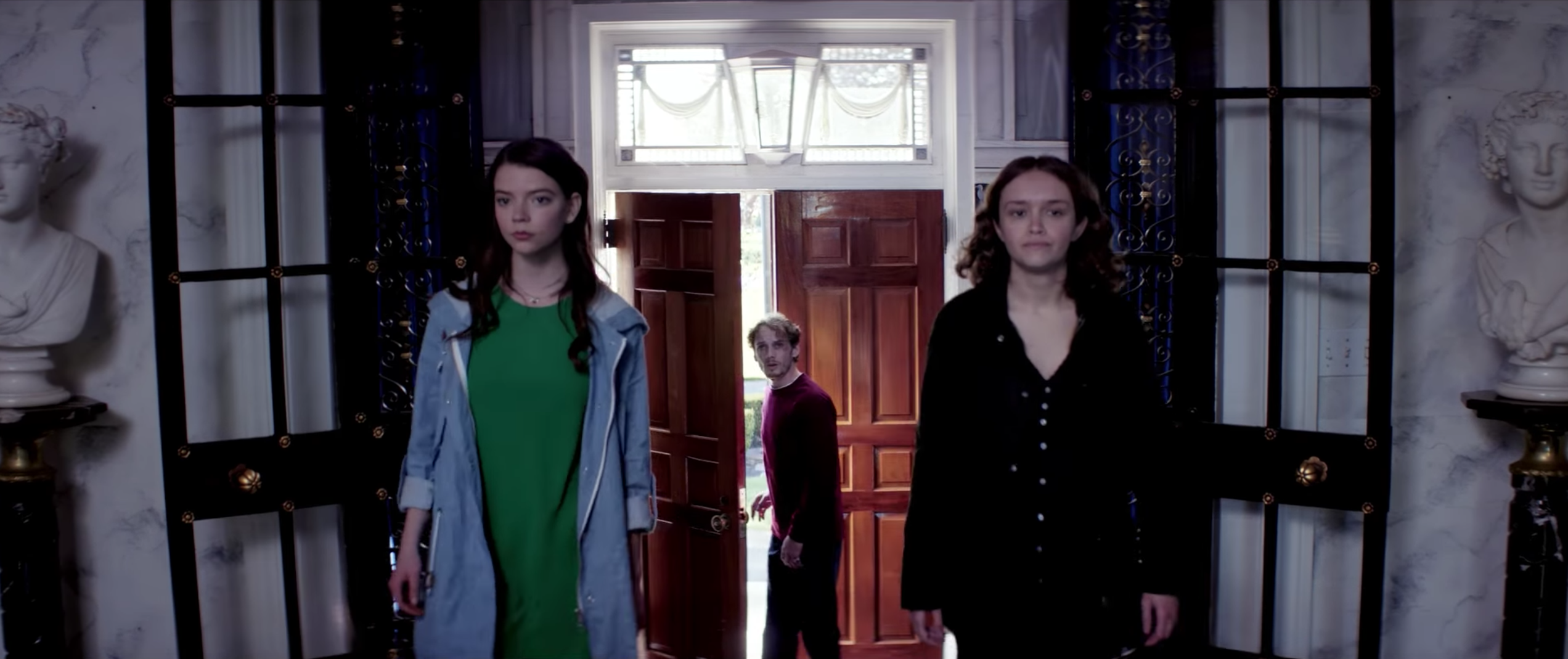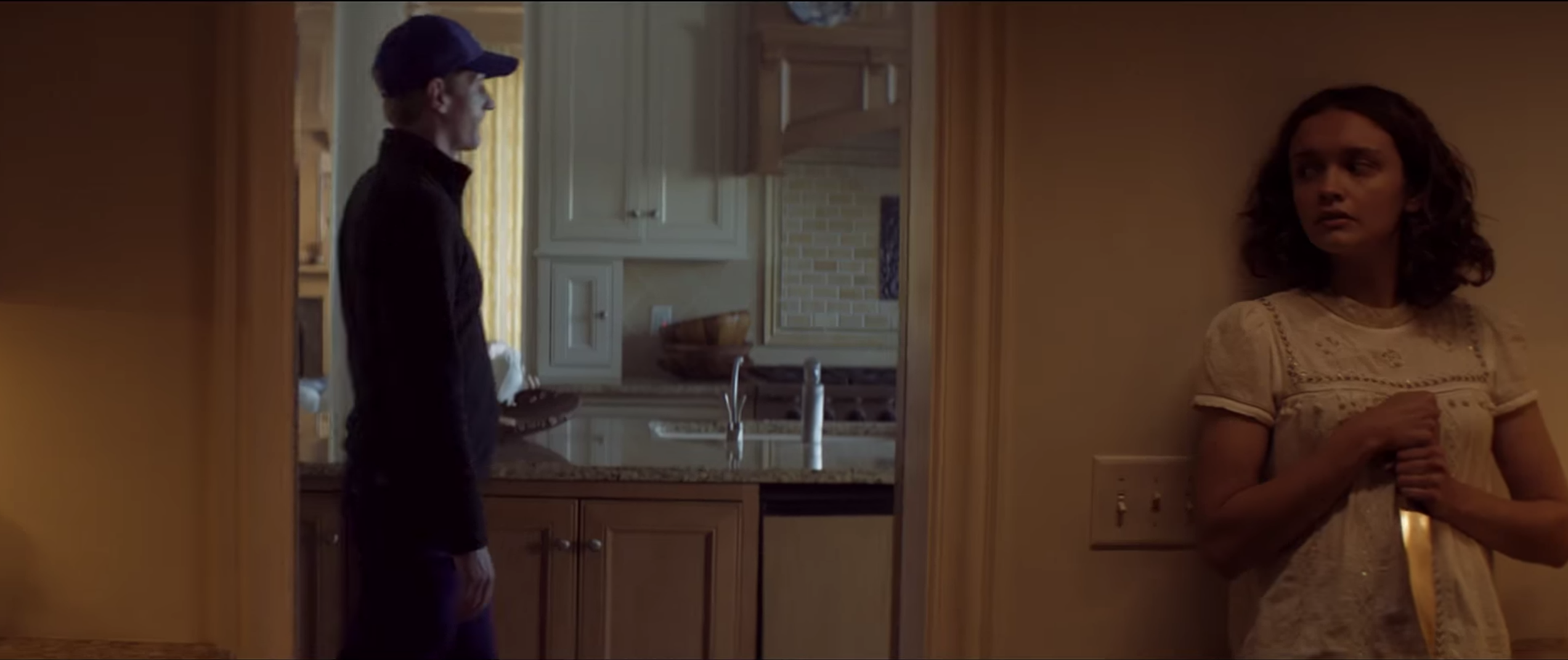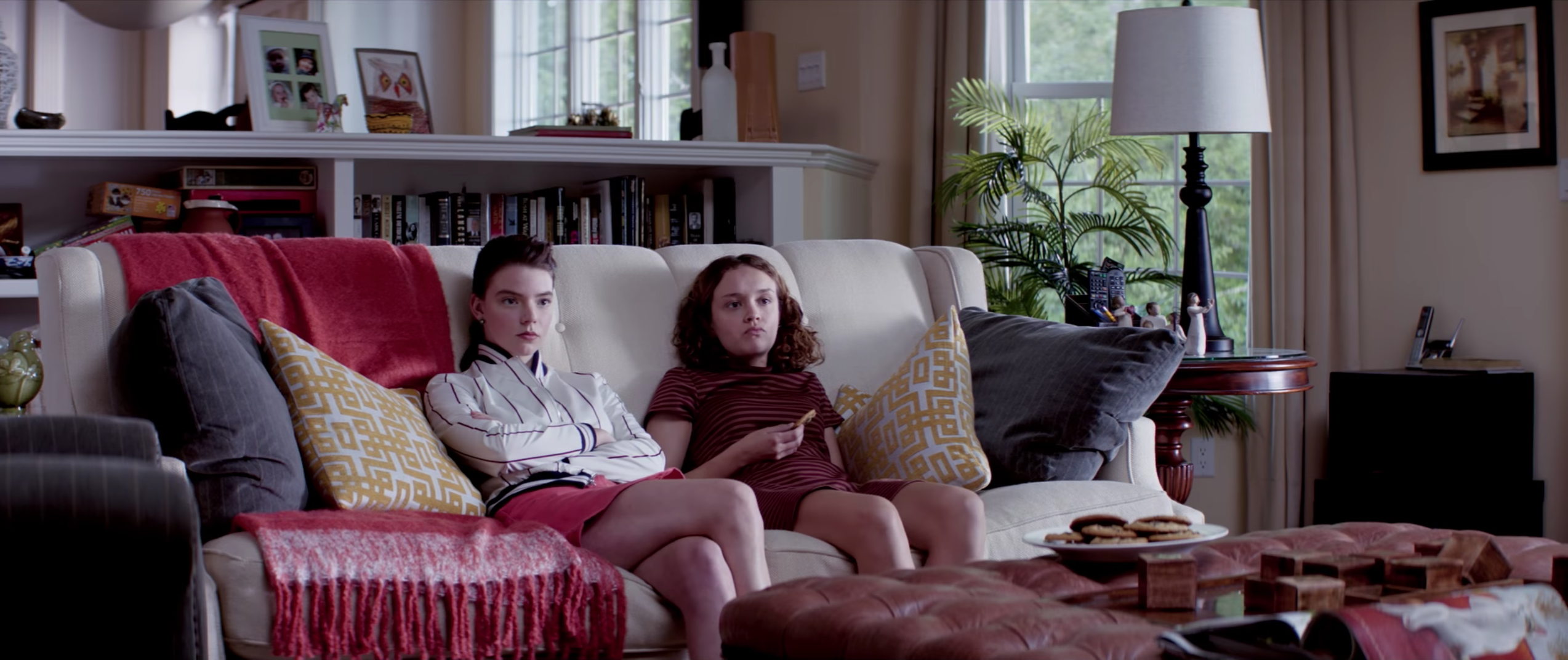Thoroughbreds: Systemic Socialization
Spoiler Alert: this post is about the film Thoroughbreds (2018), and contains important plot points from it.
In Lily’s world, someone always picks up the trash: whether its a bag of chips on the kitchen table, or the consequences of murder. She lives in a $17.5 million Georgian Revival style home with 45 rooms, a tennis court, and a private beach. Expensive antiques and artistic busts line each wall: installations that are so familiar that only the local drug dealer, played by Anton Yelchin, seems to appreciate them. But while the lavishness of Lily’s lifestyle is lost on her, make no mistake- this world is her’s, and all the characters only inhabit it.
One character in particular exists in her world the way an itch lives on a person’s skin- uncomfortably and unwelcomed. Mark, her stepfather, seems to oppose her at every turn, standing between her and the way she expects the world to be. When she is expelled from boarding school, he enrolls her in a school for troubled girls. When her friend Amanda visits, he attempts to send her home.
So, naturally, she decides to murder him.

One year ago, on a sunny afternoon in Cambridge, I was playing basketball with one of my friends, when I witnessed a child trip and fall a few feet from the basket. The fist-sized basketball he was holding rolled away from him, and I jogged over to retrieve it.
When I walked back to return it, I watched as the father kneeled beside the crying child, who reached out to him with open arms.
“You’re okay,” he said, “Now pick yourself up.”
The child continued crying and reaching out to his father, who only responded by saying, “Come on, you can do it”.
Eventually, the kid rolled over and stood. The father told him that he did a good job, and then gave him a hug.
That moment has always stood out to me as a model of parenting, and as a representation of real love. It makes me think of the consequences of the alternative, when parents fuss over a falling child. Will the child begin to equate crying with a solution? Will they begin to expect the world to swoop in and pick them up when they fall?

I imagine that these are the beginnings of the kind of entitlement that Thoroughbreds’ writer and director, Cory Finley, finds when he writes about the suburbs of Conneticut. The world of Thoroughbreds is populated with super rich kids who have everything, and believe that they deserve it.
On the other hand, we find Amanda, a black sheep in the community, who seems to be disillusioned by all of it.
When we first meet her, Amanda faces her horse with a knife in hand. Her face is stone-cold, emotionless. We later find that she killed her horse in a seemingly brutal fashion and has been tied up in a conviction for animal cruelty. Everyone around her tries to explain her capacity for violence, through rumor and diagnosis, but only Lily eventually learns the truth. Her horse was ill, and she put it out of its misery. She tried to make it as painless as possible, but it became violent after a series of miscalculations.
She is the furthest from peers, and instead of feeling entitled, she is simply apathetic. Like everyone else in her community, all of Amanda’s needs are fulfilled, however, she is different in that she wants nothing. The expression on her face seems to always say what’s the point?
The influence of Amanda’s world on her worldview is much more subtle. Instead of feeling the need to make her world conform to her, she feels like she is conditioned to conform to her world. Every emotion is practiced, and even when she cries, she does it for someone else. It does not appear to make her feel good, to conform, either. It simply seems like she feels like that is her role.

Together, Lily and Amanda stare at the ceiling toward the churning sound of Mark on a rowing machine as Lily plots his murder, and Amanda follows along. Lily believes that Mark is only on the machine to drive her crazy, while Amanda only wants to do whatever it is that a good friend would do. They are both taught by society to expect specific outcomes and act in specific ways.
By the end, both Lily and Amanda take a step outside of their own worlds. Lily mourns for the loss of a friend, the first time she is sad about something outside of her own feelings, even though she is solely responsible for her imprisionment. Amanda finds a freedom in the confines of the psychatric ward she is transferred to, genuinely smiling for the first time when she is alone, staring at an old picture of her and Lily.
When Amanda writes to Lily, she describes a dream in which horses run free over the ruins of society, not knowing who they are and what they are worth. Finally free because they do not know what they are meant to be. And in their shared act of rebellion, the two girls discover a new part of themselves in one another.
